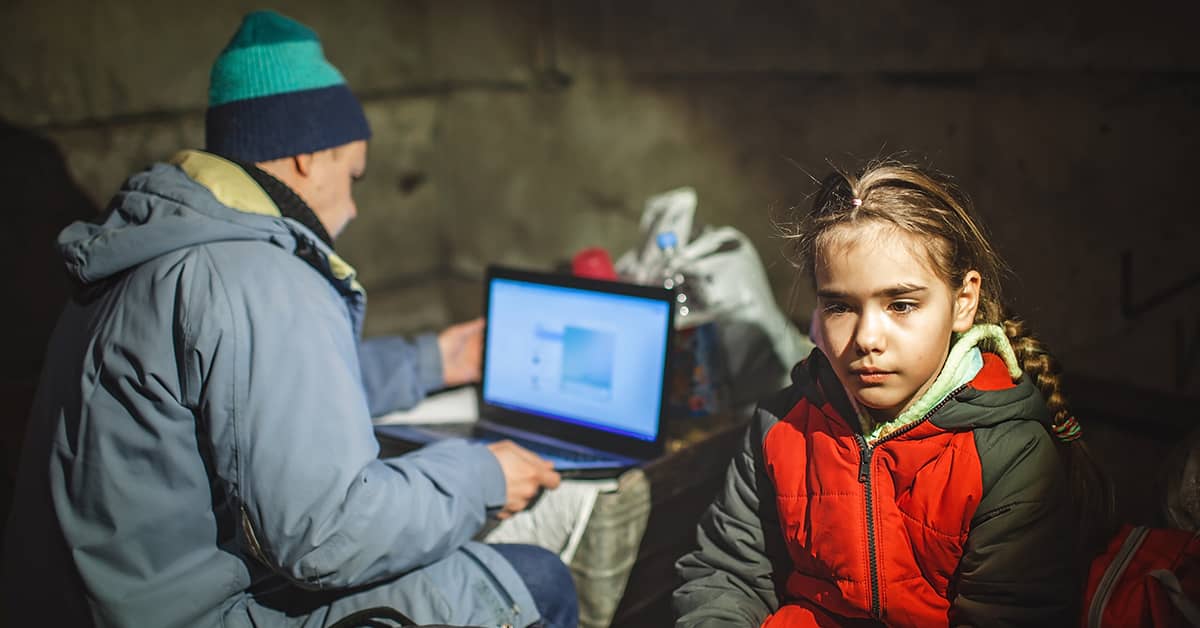Decentralization and remote work seems to be the answer.

Sheltering in basements during Russian air raids, a team of managers and designers for Ukrainian software company Skylum worked on their laptops amid air raid sirens to deliver important updates to a global audience of photo enthusiasts.
The Kyiv-based photo editing app—known for its user-friendly artificial intelligence-based features—had just released its new product Luminar NEO when Russia launched its full-scale invasion of Ukraine in late February. Nevertheless, Skylum was one of several Ukrainian software firms, such as Serpstat, Ardas and eSputnik, that continued to function while overcoming unprecedented business and personal challenges.
Providing software updates while caring for families and colleagues was the only option for a business launching a new important product, according to CEO Ivan Kutanin.
“We understood that our customers would ask whether they should buy a product from a company that could disappear tomorrow or be compromised,” says Kutanin, who took on the CEO role last year. “We wanted to show that we are reliable partners.”
The war is testing the creativity and team spirit of the 14-year-old, $30-million company, whose main development center for all major products like Luminar and Aurora HDR remains in Kyiv. In contrast, the company’s 130 employees are scattered across Ukraine and abroad.
“The invasion affected our overall capacity,” he adds. “We needed to transfer almost 70% of our employees to safer places inside Ukraine.”
Some employees moved to safer places in western Ukraine or other countries in Europe. Some volunteered to fight. Employees who remained in Kyiv throughout the invasion were later joined by others who returned to the city once the Russian offensive moved to the east. Similar stories of businesses adapting to a wartime environment as employees change cities and volunteer to help are posted on search engine optimization (SEO) platform provider Serpstat’s website.
“The safety of our employees is much more valuable than our products,” says Kutanin. “We didn’t push staff to work: It became personal. There was also a psychological factor because when you work, at least you have something that connects you to your previous life.”
A month after the start of the war, the company’s Luminar Neo was available in the Microsoft store and compatible with the newest Windows 11 edition.
With safety becoming an even more significant concern, Skylum has reassured its customers that all the infrastructure and user data was already securely hosted on Amazon Web Services using EU-based servers. In addition, the company posts regular updates about its products and engages users daily via a forum.
The war transformed all aspects of Skylum’s business organization, including communications. A scrolling blue-and-yellow banner on its website leads to a call for relief from the war and urges partners to donate money and supplies—including surveillance drones—to help the army and people in need. Skylum also published personal stories from employees affected by the war.



